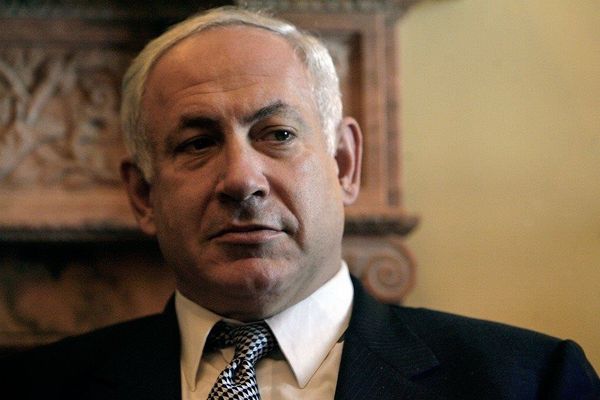WORLD FOCUS: Israel determined to prevent another Holocaust

Benjamin Netanyahu
In a recent column, I quoted Lafayette High School senior Truman Brody-Boyd, who said he would travel to Poland to participate in the International March of the Living, an annual educational program that brings students from all over the world to take the 3-kilometer walk from Auschwitz to Birkenau.
They walk in the footsteps of hundreds of thousands souls who perished at the hands of the Nazis in World War II.
“When it comes to Israel, the March of the Living demonstrates the best way why there is a need for a Jewish state,” he said. “It shows my generation the horrors a past generation endured.”
According to many experts who analyzed Israeli Prime Minister Benjamin Netanyahu’s controversial address to the joint meeting of Congress last week, his remarks reflect an unshakeable determination to prevent a Holocaust ever happening again.
Netanyahu, known in Israel by his nickname, Bibi, is the son of Benzion Netanyahu, a highly respected historian who in a 1,300-page tome documented the origins of the Spanish Inquisition, in which thousands of Jews who converted to Catholicism were tortured to death and accused of secretly practicing Judaism.
Benzion, who died two years ago at the age of 102, believed that the Jews remained an endangered species and that to survive they have fend for themselves,
In a 1998 interview with David Remnick of the New Yorker, Benzion said that “Jewish history is the history of holocausts. Hitler’s genocide was different only in scale.” Reminck noted sagely, “To understand Bibi, you have to understand the father.”
Prime Minister Netanyahu agreed to address the joint meeting of Congress at the urging of the Republican Speaker of the House John Boehner. He didn’t need much persuasion.
A student of American politics and vernacular, Netanyahu knew that such a prestigious forum would provide his message with high visibility and a rapturous reception.
Indeed, he made a forceful case for rejecting the nuclear deal with Iran that President Obama has so invested in. It is, in Bibi’s words, “a very bad deal” that would enable Iran to obtain nuclear weapons, without any restrains, in 10 years.
According to some experts, leaving Iran with its nuclear infrastructure intact – as the current deal would permit – would enable Tehran to be a “screwdriver turn” away from having an atomic bomb.
Netanyahu gave President Obama credit for his support of Israel in the United Nations, and for America’s considerable military aid and intelligence cooperation. But, he soon made it clear that many Israelis don’t trust President Obama precisely because he seemed unable to resist the temptation to conclude a deal with Iran over its nuclear weapons program, even if it left the Islamic republic’s nuclear infrastructure intact, posing an existential threat to Israel.
Netanyahu’s speech – eloquently described the dangers a nuclear-armed Iran would pose to Israel, to the wider Middle East, triggering a nuclear arms race in the region, and ultimately to the United States – received numerous standing ovations.
It is questionable how much difference Netanyahu’s address to the Congress will make on the negotiating process with the Iranians. Still, he proclaimed, “The alternative to this bad deal is a much better deal. A better deal won’t give Iran an easy path to the bomb. A better deal that Israel and its neighbors may not like but with which we could live, literarily. And no country has a greater stake than Israel in a good deal that peacefully removes this threat.”
Addressing Holocaust survivor and Nobel Prize winner Elie Wiesel, who sat in the gallery beside the wife of the Prime Minister, Netanyahu said, “I wish I could promise you, Elie. that the lessons of history have been learned. … But I can guarantee you this, the days the Jewish people remained passive in the face of genocidal enemies, those days are over. … For the first time in 100 generations, we the Jewish people can defend ourselves.”
Frank Shatz, lives in Williamsburg, Va. and Lake Placid. His column was reprint ed with permission from the Virginia Gazette. He is the author of “Reports from a Distant Place,” a compilation of his selected columns.




